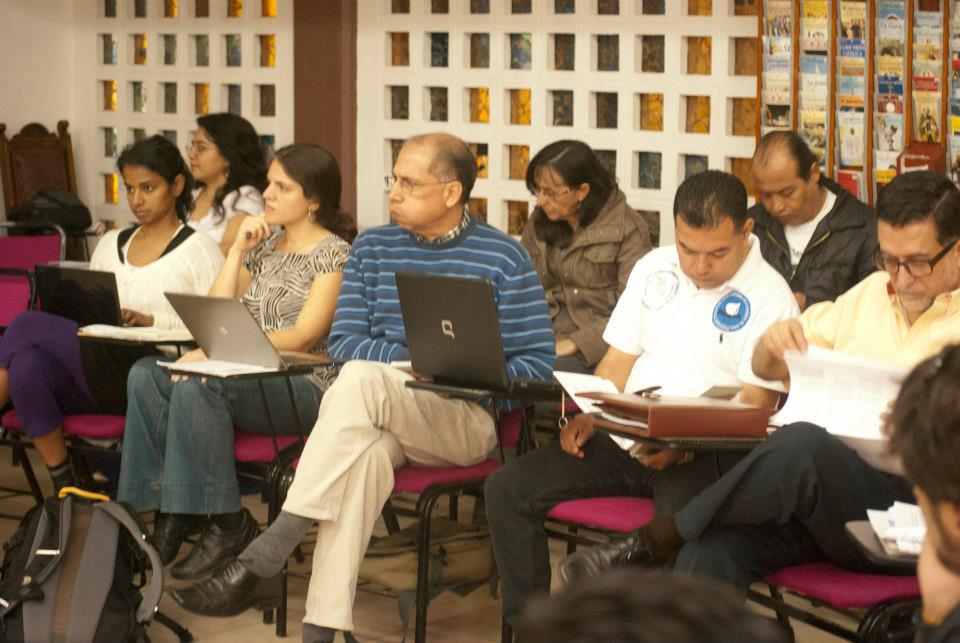Struggles to protect water throughout Latin America have been a powerful obstacle to the neoliberal growth model that has sought to dispossess communities of their communal lands and natural resources.
In 2001, when I was just beginning to learn about the resistance to neoliberal globalization around the world, I was inspired by the story of Cochabamba Bolivia, where two years prior, the community had taken to the streets to stop their water systems from being privatized by the multinational corporation Bechtel. After a bloody face-off with the Bolivian government, the people prevailed and Bechtel was ousted.
Since October 13 2012, I have been in Mexico City for meetings of the Red Vida — a network of groups working on water justice issues from across the Americas — which takes place every two years. It has been a humbling experience to share ideas and strategies with activists like Oscar Olivera of Cochabamba, Adriana Marquiso of Uruguay and many others who have led the successful struggles that have served as models for the rest of us seeking to protect water as a commons against powerful corporate interests.
The choice of Mexico City was due in part to the recent introduction of a new constitutional reform on the human right to water. Mexican groups are now pushing for legislation to implement this reform in a manner that guarantees public control of water services and resources, equitable distribution and environmental safeguards.
This has been an important occasion to take stock of the strengths and weaknesses of water justice movements of the Americas. In many Latin American countries, governments who have come to power with progressive political agendas have succumbed to pressure from international financial institutions and multinational corporations seeking to commodify water. Extractive industries in particular have proven to be resistant to political shifts despite strong environmental laws including glacier protection legislation in Argentina and constitutional rights for nature in Ecuador.
While the water justice movement continues to grow in strength and numbers, there is a sense among groups gathered in Mexico that our “enemies” are becoming more aggressive in the pursuit to privatize and commodify water resources in the face of increasing shortages.
Canadian extractive industries in the region are among the most notorious for human rights violations and environmental abuses as they pursue their massive water-intensive and water-polluting operations throughout Latin America.
Tomorrow, I will visit the communityin Veracruz fighting the Goldgroup Caballo Blanco mine with Claudia Campero Arena, Mexico-city based organizer for the Blue Planet Project on a trip organized by the network of mining impacted communities in Mexico. Due to community resistance, the state of Veracruz has demanded that the federal government reject the mine arguing that impacts on water will be far too damaging, but the company continues to pursue the project.
More on the Caballo Blanco mine at http://canadians.org/blog/?p=13821.
Blog
Water justice groups meet in Mexico City
Struggles to protect water throughout Latin America have been a powerful obstacle to the neoliberal growth model that has sought to dispossess communities of their communal lands and natural resources




